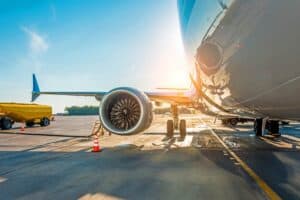Air Tanzania’s operations in South Africa remain unaffected, though Sacaa has not ruled out the possibility of future action.

The European Union (EU) blacklisted all airlines, cargo and passenger, certified by the Tanzanian Civil Aviation Authority (TCAA) this month.
The country’s flag carrier, Air Tanzania, and its cargo and charter peers are now banned from entering European airspace.
EU bans Tanzanian carriers from its airspace
The move was prompted by what the EU called “serious deficiencies” in Tanzania’s aviation oversight.
But civil aviation authorities in South Africa say they have no safety or compliance concerns about the Tanzanian airline operating into South Africa.
Presently, no Tanzanian carriers operate in the EU; however, national airline Air Tanzania had set its sights on long-haul operations, including flights to the UK, which are now scuppered.
The EU said TCAA has a lack of qualified personnel, ineffective regulatory supervision, and noncompliance with international safety standards a challenge locally.
No red flags for SA, says Sacaa
South African Civil Aviation Authority (Sacaa) spokesperson Naledi Shange said: “Airlines from Tanzania undergo our own rigorous technical assessments and ramp inspections before receiving foreign operator permits to operate in South African airspace.”
For now, Air Tanzania’s operations in South Africa remain unaffected.
The Sacaa has not ruled out the possibility of future action, but Shange said that any decisions will be based on its assessments, not the decisions of foreign regulators.
Even if an international body such as the EU or the Federal Aviation Administration (FAA) in the US flags concerns, Sacaa conducts its own investigations and assessments before considering any bans or enforcement action.
ALSO READ: Europe bakes in summer’s first heatwave as continent warms
“There is no blanket policy. If technical or safety concerns are identified, enforcement procedures are initiated, including grounding of the aircraft, if necessary,” Shange said.
“Each operator is assessed independently. We do not rely solely on the actions or findings of other authorities.”
Thus far, she said, there have been no bans on international operators in South African airspace, only corrective action.
“As part of our surveillance programme, we do conduct planned and ad hoc inspections of foreign operators.
“If issues are identified, we act. In most cases, these are addressed before the aircraft departs,” she said.
That said, recently, South African airlines stood to forfeit access to US and EU airspace after the country failed to meet a key international aviation obligation and ensure the establishment of an independent body to investigate aircraft accidents.
ALSO READ: SA expresses sadness, offers condolences to India after Air India crash [VIDEO]
SA’s aviation credibility under spotlight too
Under Annexe 13 of the Chicago Convention, which sets global aviation safety standards, accident investigations must be independent and impartial.
At present, they’re handled by the Civil Aviation Authority, an entity housed under the Department of Transport, which does not meet the required level of independence.
The department has since confirmed it will table a draft policy before Cabinet in a bid to avoid a serious safety finding, which could see local carriers grounded from some of the world’s most important air corridors.
When it comes to safety standards, Shange said robust international oversight and a strong performance record of the Sacaa.
“Sacaa participates in the [International Civil Aviation Organisation] universal safety oversight audit programme – continuous monitoring approach, which evaluates global aviation safety compliance,” she said.
“In 2022, South Africa achieved a final safety oversight score of 91.38%, placing the country among the top 20 globally.”
The FAA also reaffirmed South Africa’s category 1 status, the highest accolade possible, under its international aviation safety assessment programme in the same year.
NOW READ: SANDF budget constraints: SAAF needs R414 million to refurbish Ramaphosa’s presidential jet






